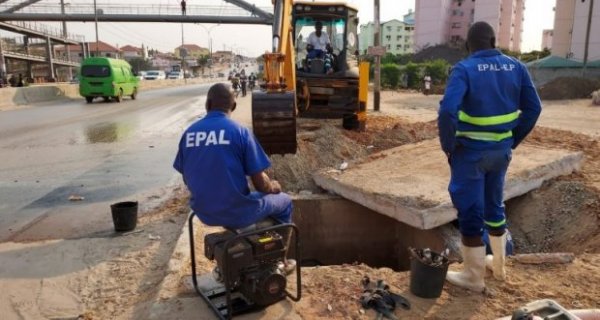The information was transmitted by the Minister of Energy and Water, João Baptista Borges, noting that, in the area of water supply projects across the country alone, more than 3 billion dollars have already been invested.
“In the area of combating drought, we have a global budget of around 4 billion dollars,” he said, adding that, at the moment, the project in Cunene, a southern province, is being implemented, which includes “the construction of the Cafu Canal and other infrastructures for supplying water to the population and livestock”, worth 900 million dollars.
“These are large investments,” the minister told Lusa, highlighting that the investments for water supply and combating drought, together, total 7 billion dollars.
Speaking at the end of the visit to several structural projects that aim to reduce the water supply deficit in Luanda, such as the Quilonga Grande project, under construction in the municipality of Icolo e Bengo, and Bita, under construction in the municipality of Belas, the minister assured that the works should be completed by March 2026.
These are the two largest water projects under construction and that “will cover the water supply deficit in Luanda”, said the government official, assuring that these will give rise to thousands of household connections and distribution networks.
The Quilonga project, under construction on the banks of the Kwanza River, should cover the municipalities of Icolo and Bengo, Cacuaco and Viana, and Bita, the southern part of the capital, which, according to the public water company, currently has a daily deficit of 1.2 million cubic metres of water, double the current production, to meet the consumption needs of 10 million inhabitants.
Baptista Borges considered both projects to be very important, noting that the Government’s objective “is to eliminate informal water trade in Luanda and, with this, make water available to the majority of the population”.
“At the moment, the water supply deficit in Luanda is more than 50 percent, which is why we see tanker trucks driving around everywhere and people living in the new neighborhoods buying water from tanker trucks. We even have condominiums in the south of Luanda that do not have water,” he stressed.
The minister, who, together with the governor of Luanda, visited projects under construction in the municipalities of Icolo and Bengo, Viana, Belas and Talatona, where he assessed the levels of execution and the degree of implementation of these projects with technicians and contractors, said that there were no “major constraints.”
“There are some technical issues that have been dealt with, in short, there are still some decisions regarding the execution of projects, but they are being dealt with within the expected time and there is no reason for concern,” he assured.
Speaking to journalists at the end of his field trip, João Baptista Borges urged the people who live or own land near the water pipelines under construction, especially in the Bita project, not to hinder the progress of the works.
“Do not demand the spaces in exchange for compensation, which often hinders the progress of the works. We are available to talk to anyone who feels harmed by the possible occupation of space, but we must have a collaborative spirit so that the projects do not stop or are suspended due to disputes”, concluded the minister.







